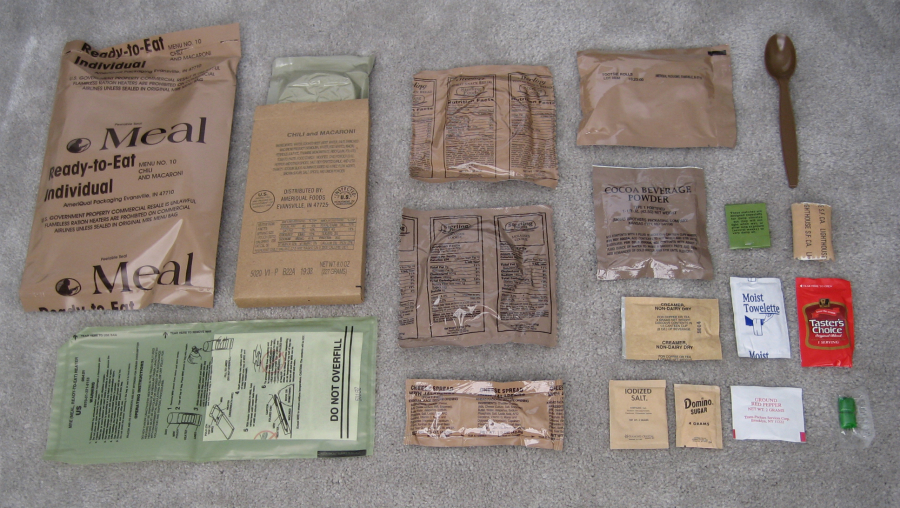Financial preparedness: How to save money on your off-grid homestead
10/11/2021 / By Zoey Sky

Prepping entails making many different kinds of preparations, based on where you plan on settling down before SHTF.
If you plan to go off-grid on your homestead, your to-do list should include financial prepping so you can save money while also stocking up on supplies for your stockpile. (h/t to Survivopedia.com)
Prepping on a budget
Some habits should be practiced long before a disaster, such as being more frugal and learning useful survival skills so you can be more self-sufficient. Here are some suggestions on how to save money on your off-grid homestead.
How to save money on food and groceries
Food accounts for most of your expenses but there are many ways to save, especially if you have a home garden.
Cook most or all of your meals at home and use fruits and vegetables from your garden to ensure that you’re only feeding your family fresh, delicious produce without any harmful pesticides. You can still go out to eat, but do so as a treat only for very special occasions so you don’t feel deprived.
You can also save time and money with meal prepping and cooking big batches of food on weekends. Refrigerate the meals and freeze the leftovers for quick dinners throughout the week.
If you have family members who still go to school or work, prepare snacks and lunch so they aren’t tempted to buy junk foods during breaks. And if they love coffee, let them bring a tumbler of coffee to work instead of spending money on an overpriced coffee. (Related: Food supply basics: 11 Foods to stock up on if you’re on a tight budget.)
Cook or make whatever you can at home. Start with simple recipes like bread or jams and jellies. As you get used to cooking at home, move on to more complicated items like fruit preserves or Mason jar meals.
Start a home garden and grow fruits and vegetables, then purchase the ones you can’t grow in a particular season and preserve them so they’re available for you and your family year-round. Save the seeds and start your vegetables using those seeds instead of buying seedlings.
If you’re new to gardening, start small so you don’t get overwhelmed. Figure out which type of vegetables you buy often and try growing them in your garden. Choose plants that don’t require constant attention.
Try growing regular vegetables like cabbage, lettuce, kale and spinach and learn the most effective ways of raising them without breaking the bank. Start from seeds that cost less instead of buying expensive transplants.

How to save money on health and skincare
Get a good set of hair clippers and learn how to cut hair to save money on trips to the salon.
Try making body care products. With affordable ingredients like beeswax, essential oils and water you can make different products like soap or body butter.
- For tooth powder, you will need baking soda, salt and dried sage.
- Make shea butter soap with glycerin soap, shea butter and essential oils.
- To make body butter, you will need avocado oil, coconut oil, grated beeswax, sesame oil and cocoa butter.
- Make deodorant powder with baking soda, cornstarch and antibacterial essential oils such as rose or lavender.
Stay active to keep your body healthy. Work out at home or jog regularly. Even arduous tasks like cutting firewood or gathering water counts as exercise.
Grow medicinal herbs and plants that you can use to make home remedies for common health complaints.
How to save money on shelter and clothing
Learn how to make minor electric and plumbing repairs by borrowing library books or watching how-to videos online.
When starting a construction project, use mostly salvaged or scrap materials reclaimed from construction sites. If you’re not sure where to get materials, check with demolition companies and classified ads.
If you have children, buy them clothes at consignment shops and thrift stores. When buying clothes for yourself, don’t waste money on brand-new and often overpriced items.
Make clothing last longer by learning how to to patch and repair. Basic skills you need to learn include how to sew a button, patch jeans and darn socks. Wash clothes and hang them out to dry on a sturdy clothesline instead of using a clothes dryer.
How to save money on utilities
If you have the budget, invest in a solar or wind energy system for your off-grid homestead and make sure your home is energy-efficient.
Making your home energy-efficient ensures that it will need less energy to run. Replace inefficient incandescent light bulbs with LED bulbs or CFLs (compact fluorescent lamps).
Do you work from home? If you’re using a desktop computer or a laptop, adjust its power management settings so it’s not on all the time. Change computer settings so they go into sleep or hibernate mode after several minutes of inactivity.
If you live in a warm state, you probably need air conditioning during hot summers. When using the AC, set the thermostat at 70 degrees Fahrenheit or higher. Every degree increase on the thermostat can save you at least seven to 10 percent on cooling costs.
Seal and insulate all the heating ducts in your home. If you have neglected cracks and openings, heating ducts can lose up to 20 to 30 percent of heated air.
When winter comes around, use a heated mattress pad to maintain a comfortable body temperature at night. Wear thick clothes and use a small space heater in the room where you spend most of your time, such as the living room. Closing off the room will help you turn down the thermostat and save energy.

How to save money on transportation
If you live in a remote location, you still need to spend money on travel costs for supply runs.
Start by walking instead of driving short distances. Invest in a good bicycle for short trips. If you live near the city, sign up for car-sharing programs instead of buying and maintaining a car.
Make the most of occasional trips to the city by combining several errands like a grocery store run and a visit to the library. If you commute by car, set up a carpool with your coworkers.
If you need a car, learn how to perform maintenance on it to avoid service fees. Learn how to change the oil and replace lights or car parts instead of paying someone else to do your basic maintenance and repairs.
How to save money on entertainment
Even hardworking homesteaders need to take a break occasionally, but you can entertain yourself and your family without having to splurge. If you want to go out, trade babysitting time with neighbors you trust instead of hiring a babysitter.
Your town might offer cultural entertainment that is free or at least inexpensive. Check local announcement boards for benefit concerts, outdoor movie screenings or other events that will entertain you or give you a chance to socialize with your neighbors.
For birthdays and the holidays, save money on gift-giving by making personalized gifts.
Financial preparedness is a skill you need to learn and practice. There are many ways to save money as you learn to be more self-sufficient managing your homestead.
Sources include:
Tagged Under: budget prepping, financial prepping, food supply, homesteading, how-to, meal prepping, off grid, preparedness, prepper, prepping, SHTF, survival, survival food, Survival Tips, tips
RECENT NEWS & ARTICLES
COPYRIGHT © 2017 FOOD FREEDOM NEWS





















